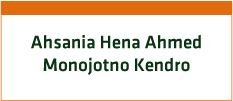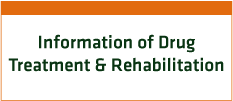“Advocacy of Stronger Road Safety Legislation in Bangladesh”.
Project Name: “Advocacy of Stronger Road Safety Legislation in Bangladesh”.
Duration: 01 March 2021 to 28 February 2023.
Project Scope: National (Bangladesh)
Donor: Global Road Safety Partnership (GRSP) hosted by International Federation of Red Cross and Red Crescent Societies (IFRC)
Context: To reduce the calamity of almost 2000 annual deaths from road-accidents, Bangladesh has developed laws and rules to regulate motor-vehicle use and ideal road protocols. However desired results are yet to be visible due to legal loopholes, ineffective implementation practices, and inappropriate road-use behavior.
First legal proceeding concerning vehicle-use took place in independent Bangladesh in 1972 with “Motor Vehicles Act (MVA)-1939”, which reflected “Motor Vehicles Act-1939” and “Motor Vehicle Rules-1940” of British Bengal. In 1983, “Motor Vehicles Ordinance-1983” was publicized; and rules were formulated regarding licensing of drivers, licensing the conductors and registration of vehicles; without much alterations from the MVA-1939. Recently a law was passed with a view to updating and amending the 1983 ordinance– the Road Transport Act 2018 (RTA-2018). But there is still gaps in the amended RTA-2018; like- Helmet use for driver and passenger is mandatory but no ‘prescribed type’ (standard) for helmet is set out in the Act; driver and passengers to wear helmet properly (but what is proper is not mentioned) in the Road Transport Act 2018; E-bike is not mentioned in the Act; Drivers are not allowed to drive exceeding permissible limit but nothing is mentioned regarding urban/rural speed limit and local authorities have not been given any power to modify speed limit under any law; No provision for Child restraint system in the Ordinance of 1983 and in the Act of 2018. So, there are the provisions for regulating helmet use, driving under influence of drink or drug and seat belt use have been made in the RTA-2018 but the standard of helmet, e-bikes, BAC and child restraint system are missing there. The proposed project is focusing with the amendment of the RTA-2018.
Project Purpose: The project goal is to build support for legislative and policy reforms for improving road-safety in Bangladesh with a focus on strengthening the Road Transport Act (RTA), 2018. The project aims at achieving this goal primarily through advocacy for amending the RTA-2018 with strong measures on key road-user behavioral risk factors. In addition, the project will explore possible opportunities to strengthen the Rules for RTA-2018, which are yet to be notified.
The following will be the specific objectives of the project –
Objective 1: Build political support for strengthening the RTA 2018 through amendments on provisions related to key behavioral risk factors.
Objective 2: Build wider support on the importance of the effective measures on child restraints through strengthening of RTA and its rules.
Objective 3: Build media supports to influence policymakers and different stakeholders for creating enabling environment for RTA-2018 amendment, formulation of rules under it and proper implementation.
Objective 4: Strengthen project staffs capacity and ensure the inter coordination among the other GRSP Grantees on road safety issues.
DAM experience:
Dhaka Ahsania Mission (DAM) is a non-government organization founded in 1958 by eminent educationist, social reformer and spiritual leader Hazrat Khan Bahadur Ahsanullah (Rm). With founding motto “Divine and Humanitarian Service”, DAM pursues social and spiritual development of community, focusing to improve people’s rights on health, education, livelihood, habitat and social justice.
Health Sector is one of DAM’s core sectors which commits to bring a change and ensure support and care required for harmonious life. With cooperation from different government offices, national/international-NGOs, donors, voluntary organizations, and kind-hearted individuals, Health Sector strives to affirm well-being.
A Strategy Paper was developed in January 2016 as Health Sector’s guide, which aims reducing health risks and thus improving the quality of life and livelihood. Keeping Sustainable Development Goals/SDGs in mind, especially “Goal-3: Good health and well-being”, it takes Government initiatives and DAM concerns under. During a review, Health Sector identified Road-Safety as a serious concern for obtaining wellbeing. This has been included in Multi-sectoral Action Plan for Prevention and Control of Non-communicable Diseases (2018-2025) by Ministry of Health and Family Welfare.
DAM succeeds in result-based advocacy and lobbying with policymakers and influential stakeholders. DAM was an influential member of drafting committee for Tobacco Control Law in 2005 and 2013. DAM has been in the amendment committees for Narcotics Control Act-1990; and drug dependence prevention, treatment and rehabilitation act-2018.
DAM performed successful advocacy, funded by Save the Children, to orient/update focal points of 17 Ministries and their concerned departments to create enabling environment to combat HIV/AIDS in Bangladesh and to address legislative challenges hindering AIDS response. As national taskforce committee member, DAM played significant role and succeeded for inclusion of HIV/AIDS issues in national non-formal education curriculum. DAM performed advocacy with Parliamentary Standing Committee, and policymakers from Ministries of Health, Law and Home Affairs for finalizing Tobacco Control Law amendment. As a result, GoB finally passed the amended Law in 2013.
DAM has been advocating stakeholders of Dhaka North and South City Corporations and providing technical assistances for development and implementation of Smoke-free Guidelines. DAM contributed for capacity building of City Corporation officials through different sensitization orientations/workshops. DAM’s strong collaboration and goodwill at DNCC and DSCC, through its Urban Primary Healthcare Service Delivery Project-II, resulted in organization’s success in such activities. DAM has worked with Local Government Division and its institutes, Ministry of Civil Aviation and Tourism, and National Tobacco Control Cell while formulating many different guidelines/strategy-papers on tobacco-control.
Currently DAM has been implementing DARAU Project with funding from USAID and technical support from Counterpart International with the objective to performing national advocacies in increasing local policymakers, civil society members and community engagement to prevent drug addiction. DAM has been reviewing drug dependence prevention, treatment and rehabilitation act-2018; alongside performing higher-level advocacies for its proper implementation. DAM has been implementing different health and nutrition programs in collaboration with several Municipalities.
DAM has assisted in preparing different implementation guidelines for law enforcement agencies such as DMP, aiding MoHA. DAM’s collaboration with BRTA resulted in organizing much training on health-issues for professional drivers, and it influenced BRTA to reconsider the training manuals incorporating beneficial health messages. It also collaborates with MoHA to aid and rehabilitate prisoners.






